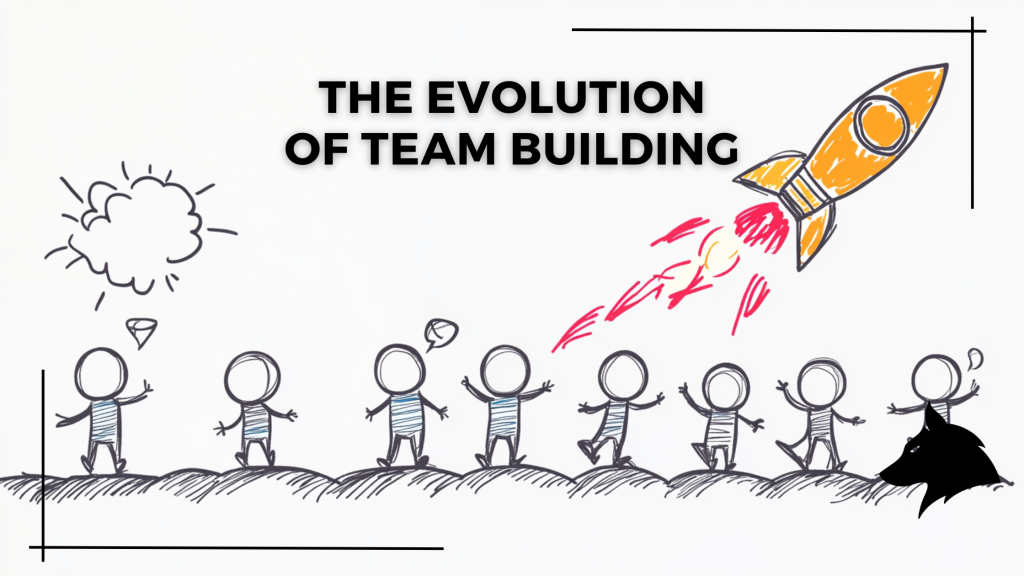From Icebreakers to Rocket-Building Team Activities
In the fast-paced business world, team building has undergone a remarkable transformation over the past two decades. What was once a simple gathering for icebreaker games has evolved into a sophisticated, data-driven approach to fostering high-performing teams.
Let’s explore this journey and its impact on modern organisations.
The Early 2000s: Breaking the Ice
At the turn of the millennium, team building often meant a day out of the office for trust falls and name games. While well-intentioned, these activities rarely translated to measurable business outcomes. A survey from that era revealed that only 30% of employees found traditional team building exercises valuable for their work performance.
The Rise of Experiential Learning
As we moved into the 2010s, organisations began to recognise the need for more meaningful experiences. Adventure-based learning and problem-solving challenges gained popularity. Companies like Atlassian (a client of Premier Team Building) pioneered innovative approaches, incorporating their values into team building events that simulated real-world scenarios.
The Digital Revolution
The advent of remote work, accelerated by global events, ushered in a new era of virtual team building. By 2020, 85% of Australian businesses had implemented some form of remote work arrangement, necessitating a shift in team building strategies.
While the rise in superficial bonding activities such as virtual escape rooms, online trivia contests, and digital programs became the norm, Premier Team Building remained steadfast with their result driven focus and designed Hands-on Online team building events to continue the development of teams and not sacrifice quality due to lack of in-person engagement.
The Data-Driven Approach
Today, team building has become a science. AI-powered analytics tools now allow organisations to measure the impact of team building initiatives with unprecedented precision. A recent study showed that companies utilising data-driven team building approaches saw a 23% increase in employee engagement and a 17% boost in productivity.
The Future: Personalised and Purpose-Driven
Looking ahead, the future of team building lies in personalisation and purpose. Neuroscience-based approaches are gaining traction, with activities tailored to individual cognitive strengths and team dynamics. Moreover, there’s a growing emphasis on corporate social responsibility, with 78% of employees stating they prefer team building activities that contribute to social or environmental causes.
The ROI of Modern Team Building
For the C-suite executives and HR directors reading this, the question of return on investment is paramount. The numbers speak for themselves:
- Companies with strong team building programs report 26% higher revenue per employee
- Effective team building initiatives reduce staff turnover by up to 50%
- 81% of employees who participate in modern team building activities report increased trust in their colleagues and leadership
For those of us who are looking for more hard figures; by taking part in result driven team building programs, organisations can reduce staff turnover and boose retention.
The costs associated with staff turnover are reported to be:
- The average cost to replace an employee is estimated to be about 50% of that employee’s annual salary .
- Some studies predict that replacing a salaried employee costs 6-9 months of their salary. For an employee making $60,000/year, that’s $30,000-$45,000 in recruiting and training expenses .
- Other estimates put the cost at 1-2 times the employee’s annual salary .
- Gallup estimates the cost of replacing an employee can be 50-200% of their annual salary .
- The Society for Human Resource Management (SHRM) reports that the total costs associated with individual employee turnover can range from 90-200% of the employee’s annual salary .
- The costs tend to be higher for more senior or specialized positions. For example, replacing a technical or supervisory employee is estimated to cost 100-150% of their annual salary .
These statistics underscore the critical role that innovative team building plays in driving business success in today’s competitive landscape.
In conclusion, the evolution of team building reflects the changing nature of work itself. As we navigate an increasingly complex and interconnected business world, the ability to forge strong, adaptable teams is more crucial than ever. The most successful organisations will be those that embrace this evolution, leveraging cutting-edge approaches to create cohesive, high-performing teams ready to tackle the challenges of tomorrow.
Is your organisation ready to elevate its team building strategy? Contact Premier Team Building today to discover how our bespoke, data-driven approaches can transform your team’s performance and drive tangible business results.


